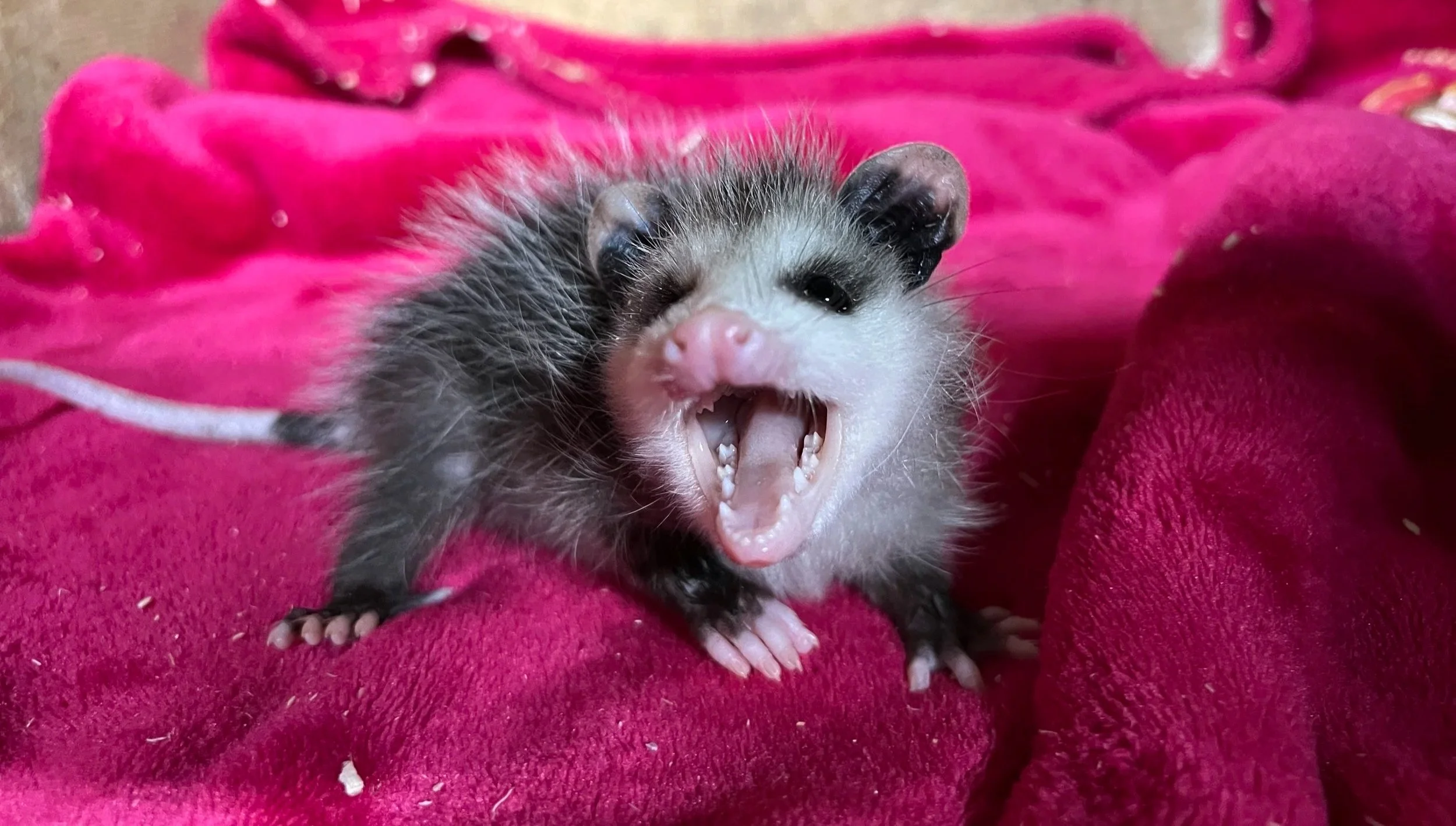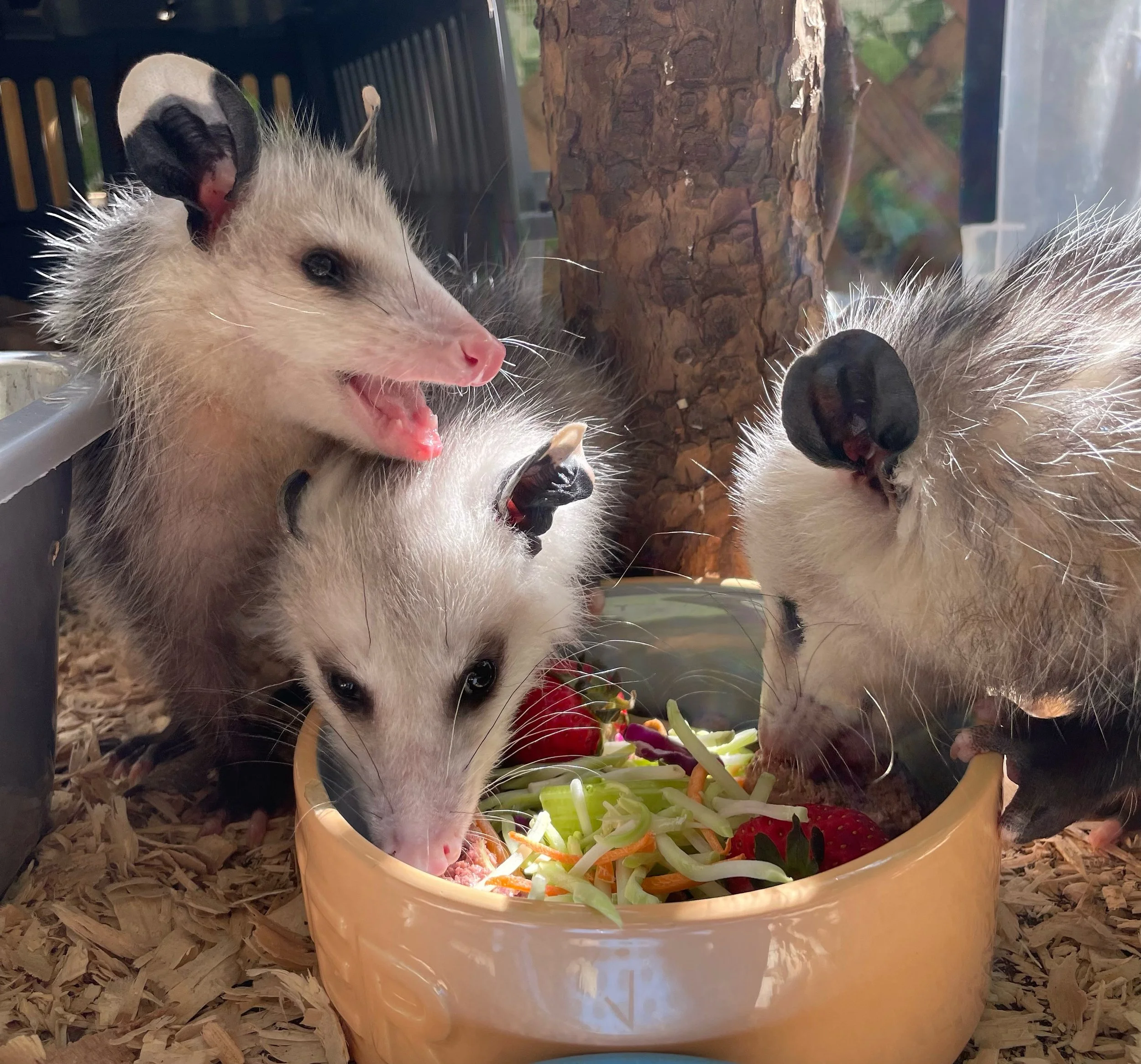Virginia Opossums
The Virginia opossum is New York’s only native marsupial—a warm-blooded mammal that carries and nurses its young in a pouch. These gentle, nocturnal animals play a vital role in our ecosystem by eating ticks, snails, slugs, and even carrion, helping keep our environment clean and disease-free.
Opossums are often misunderstood, but they are docile, non-aggressive, and rarely carry rabies due to their low body temperature. When threatened, they may bare their teeth, hiss, or “play dead,” but this is all a defensive bluff. They would much rather avoid conflict entirely :)
If You Find a Baby Opossum
Once out of the pouch, baby opossums cling to their mother and travel everywhere with her, slowly learning how to survive on their own. However, due to their large litter sizes, it’s not uncommon for a baby to fall off and get left behind.
If you ever see a baby opossum (see below for how to tell a baby from an independent juvenile), they must come into a licensed rehabilitator. Unlike squirrels, baby opossums cannot be reunited with their mother.
If a baby opossum is less than 10 inches from nose to base of tail, they still need their mother and require care from a licensed wildlife rehabilitator.
Place the baby in a secure box lined with fleece or a soft T-shirt and call us immediately at (845) 558-7931.
Do not offer food or water.
Do not touch, pet, or hold the opossum.
If You Find an Adult Opossum
If the opossum is moving normally, leave them alone. They’re likely healthy and just passing through.
Opossums are naturally slow and clumsy walkers, so don’t assume one is sick or injured just because they are moving slowly or are active during daylight hours.
If the opossum appears injured, bleeding, dragging a leg or tail, circling, or has been hit by a car, call Rockland Wildlife at (845) 558-7931.
If you find a deceased mother, check her pouch. Babies can survive there for hours or even a full day.
Use gloves or a towel and gently place the mother in a box.
Call us immediately at (845) 558-7931 for assistance.
Do not attempt to remove the babies from her pouch. Wildlife rehabilitators are trained in proper techniques to safely extract the babies.
Do not offer food or water.





